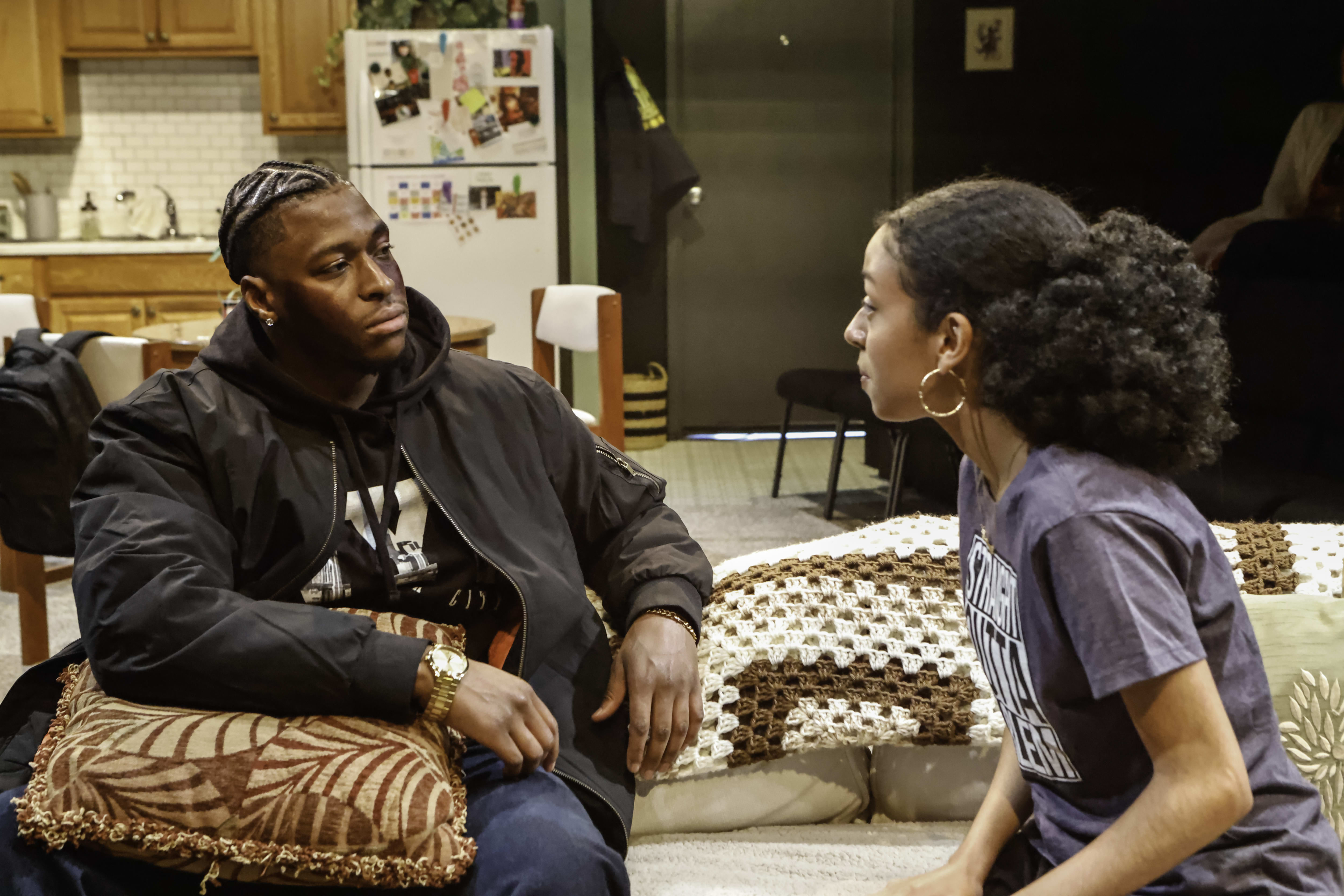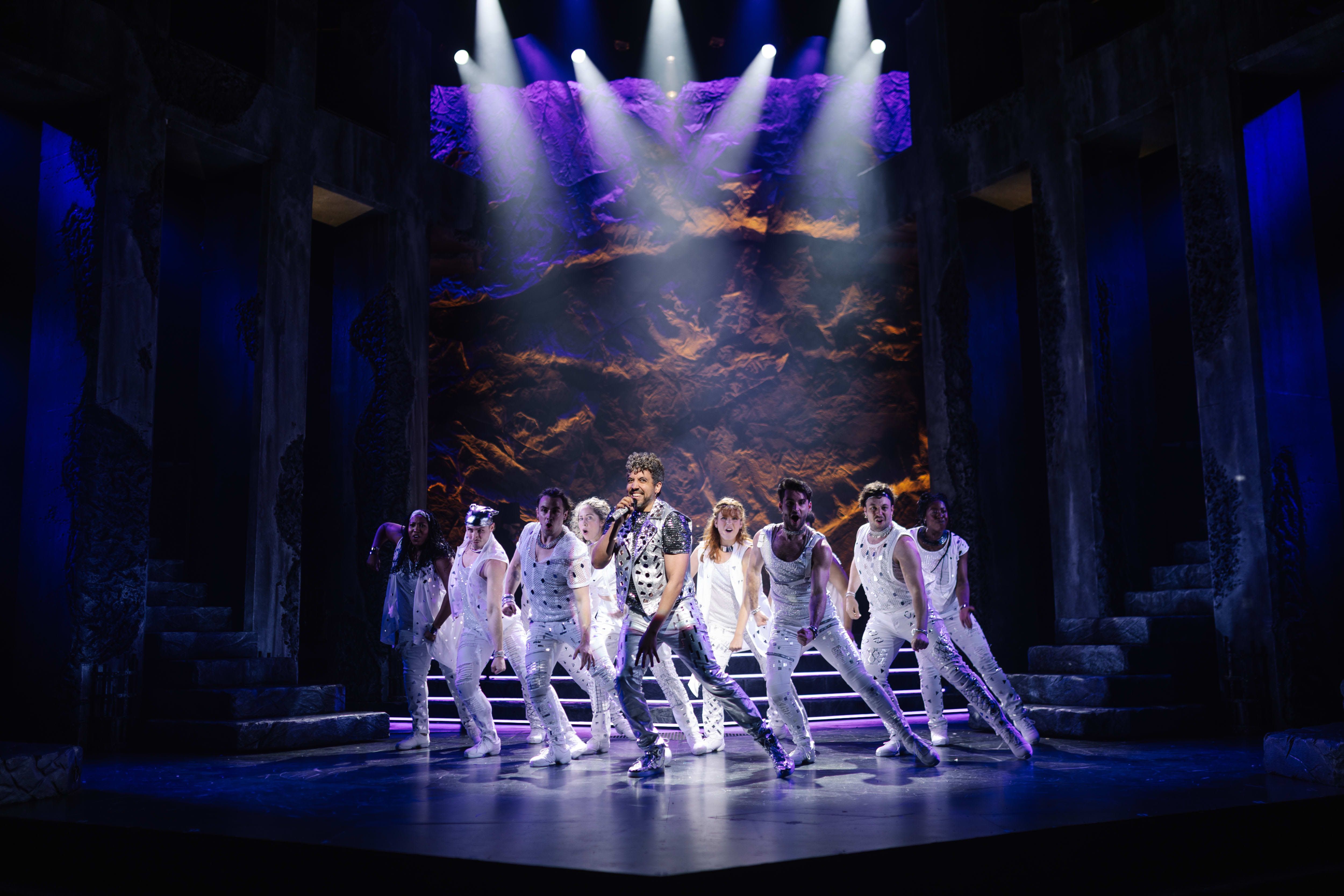WBTT's 'Purlie' Spreads a Message Through Laughter

Image: Kayla Erny
Who would have thought, back in 1961, that a play set in the segregated Jim Crow days of the South, with rampant racism on display, could use comedy as its weapon, rather than straight drama? Longtime actor-writer-activist Ossie Davis thought so, with his play Purlie Victorious, and a few years later, the makers of the musical version of the story, called simply Purlie, thought so, too—and so did audiences of the time.
It still works today, with a recent Broadway revival of the original nonmusical version winning over theatergoers and critics alike. The musical has had its revivals, too, and Westcoast Black Theatre Troupe, which has presented the show before, is opening its 26th season with the piece, featuring music by Gary Geld, lyrics by Peter Udell, and a book leaning heavily on Davis’ original, with additions by Udell and Philip Rose.
The humor is often broad in Purlie, even slapstick, but it works in the context of the story. Purlie (Raleigh Mosely II) is a charismatic preacher returning to his small Georgia hometown after years away, determined to get the money his family is owed by white tyrant Cap’n Cotchipee (Chris Caswell) so that he can reopen Big Bethel, a church for the African American community. He has in tow the improbably named Lutiebelle Gussie Mae Jenkins (Jazzmin Carson), a domestic servant who’s clearly under his spell and ready to pretend to be the long-dead cousin for whom the money was meant.
But first Purlie has to persuade his brother, Gitlow (Patric Robinson), who, like everybody else in town, works for Cotchipee, and his sister-in-law, Missy (Jannie Jones), to go along with the scheme. And then he has to confront Cotchipee head on, albeit with the moral support of the Cap'n’s more progressive son, Charlie (Cody Farkas).

Image: Kayla Erny
The show opens with a rouser, “Walk Him Up the Stairs,” that puts us at the Cap’n’s funeral, before heading back in time to Purlie’s arrival. The number gives the ensemble cast, choreographed by Donald Frison with an energetic mix of clapping, stomping and tambourine shaking, plenty of room to demonstrate their talents, while making the audience want to leap onstage and join them.
Frison’s choreography, and its execution by the cast, is certainly a highlight of the production, on numbers including “Skinnin’ a Cat,” “Great White Father” and “The World is Coming to a Start.” And the music direction, by WBTT first-time Carl Haan, is outstanding, with a band of eight musicians giving it, and us, their all.
Mosely has appeared in a number of roles at WBTT, but Purlie gives him a chance to really shine, delivering torrents of spirted oration, especially in an Act II scene that has him relating his “victory” over the Cap’n to an enthralled group of listeners. Carson, who’s also appeared at WBTT before, likewise really comes into her own here as the wildly funny Lutiebelle, with a comic delivery that wins the audience over immediately, as well as a voice that delivers "I Got Love" with zest.
More established in their careers, but no less impressive, are Robinson as the wily Gitlow and Jones as the encouraging Missy, with a powerhouse voice that especially rings out on “He Can Do It.” Farkas and Marcey Green, as the Black woman who’s taken care of him and the Cap’n for years, do well in supporting roles; and the overall production values, from set to costumes to video projections, are a reminder of how far this theater company has come over the decades.
One caveat, perhaps, is the length of the show. With a first act clocking in at an hour and 40 minutes, and a second act adding 50 more minutes, it looks possible to trim some dialogue and maybe even a song or two without losing impact. The show becomes a nearly three-hour ask of the audience, in total—but then, when you see the cast absolutely unflagging, maybe you feel you can last, too.
Purlie continues through Nov. 9 at WBTT; for tickets, call (941) 366-1505 or visit westcoastblacktheatre.org.



